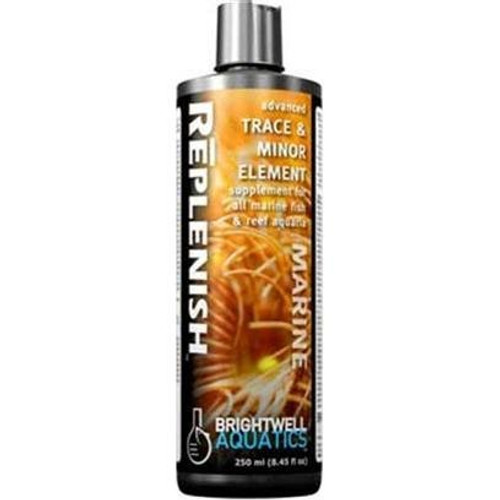Concentrated Vitamin-C Supplement for all Marine Fish & Reef Aquaria Overview Highly-concentrated vitamin-C solution. Buffered; will not impact pH when used as directed. Stronger than competing products. Vitamin-C is associated with improved tissue growth and with aiding the immune system. Intended to provide benefits to all aquarium inhabitants. Well-suited to use in coral propagation. Requires no refrigeration. Composed of purified water and ultra-high purity ingredients. Formulated by a marine scientist. Technical Background The benefits of vitamin-C to aquatic organisms are largely related to improved tissue growth, particularly after recently-sustained injury or illness. Corals and their allies, in particular, have been observed to benefit tremendously from regular controlled dosage of vitamin-C by increasing their rate of soft tissue growth; this aspect is of particular interest to hobbyists and researchers involved with coral propagation, in which coral tissue is damaged during the process of splitting colonies and/or individual polyps. Grow-out systems regularly dosed with vitamin-C also tend to have improved growth rates when compared to control systems with identical environmental conditions. These benefits are believed to be a result of the positive impact that vitamin-C has on the immune system; this benefit translates to fishes as well as to the remainder of invertebrates maintained in marine aquaria. Vitamins are compounds required in minute concentrations for vital metabolic reactions; the amounts of vitamins required for a given species varies. Short-term vitamin deficiencies can typically be tolerated by most organisms, however long-term deficiencies tend to result in abnormalities, poor health, and eventually even death of the specimen. Conversely, if severely overdosed, ingested vitamins can have a negative impact on a specimen by way of toxicity, though the impact is unlikely to be permanent. Decreasing the vitamin dosage typically results in f
Brightwell Aquatics Vitamarin_C _ Vitamin_C Supplement for all Marine Aquaria 250mL 8.5oz
Was:
$113.78
Now:
$56.89
- SKU:
- W243594
- UPC:
- 810086010677
- Condition:
- New
- Availability:
- Free Shipping from the USA. Estimated 2-4 days delivery.







